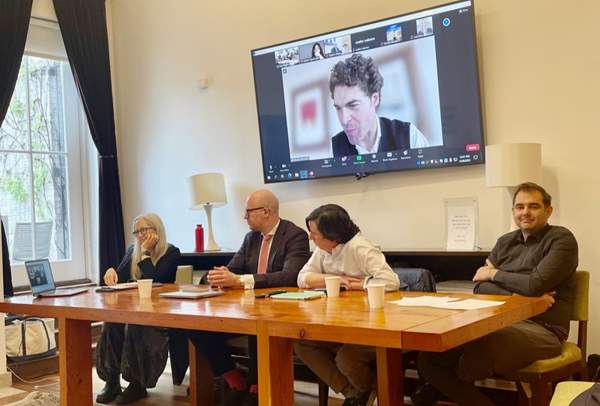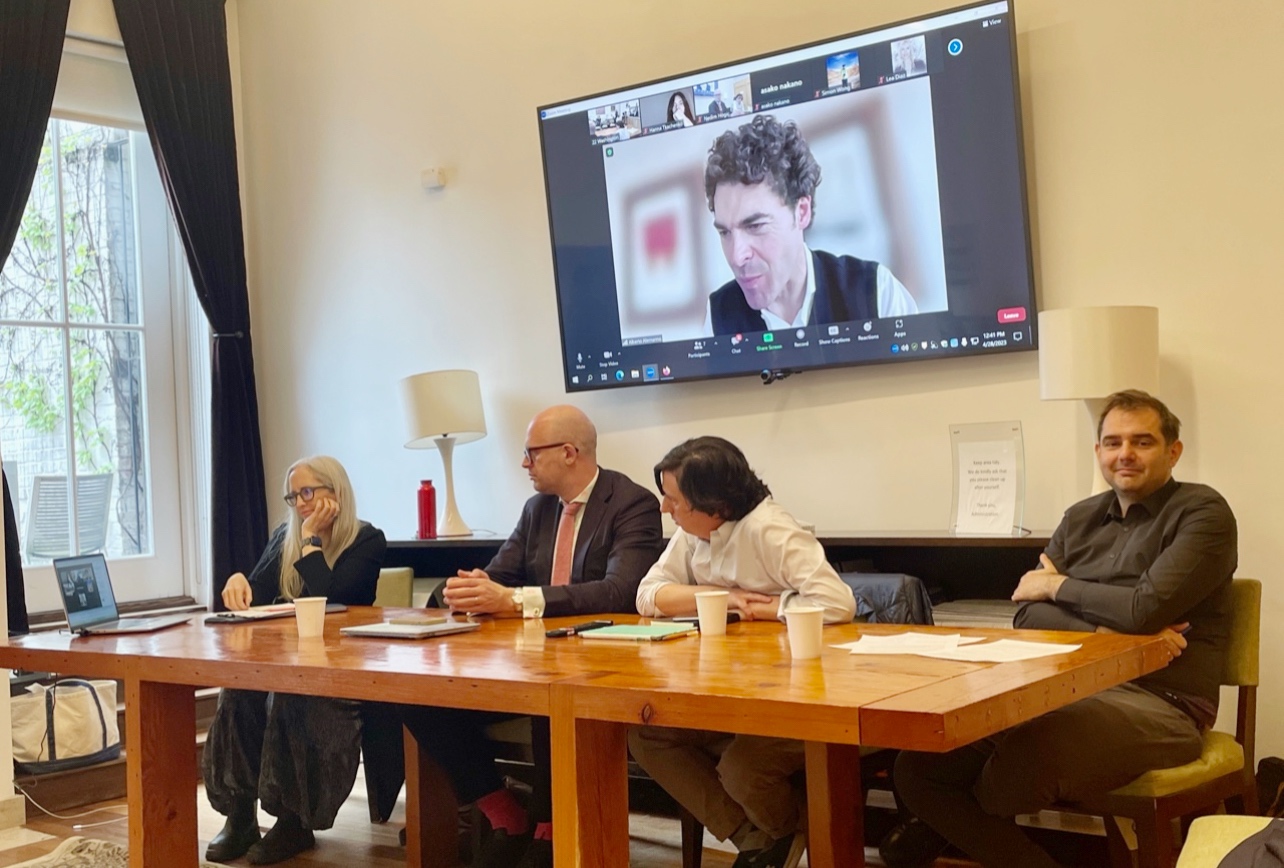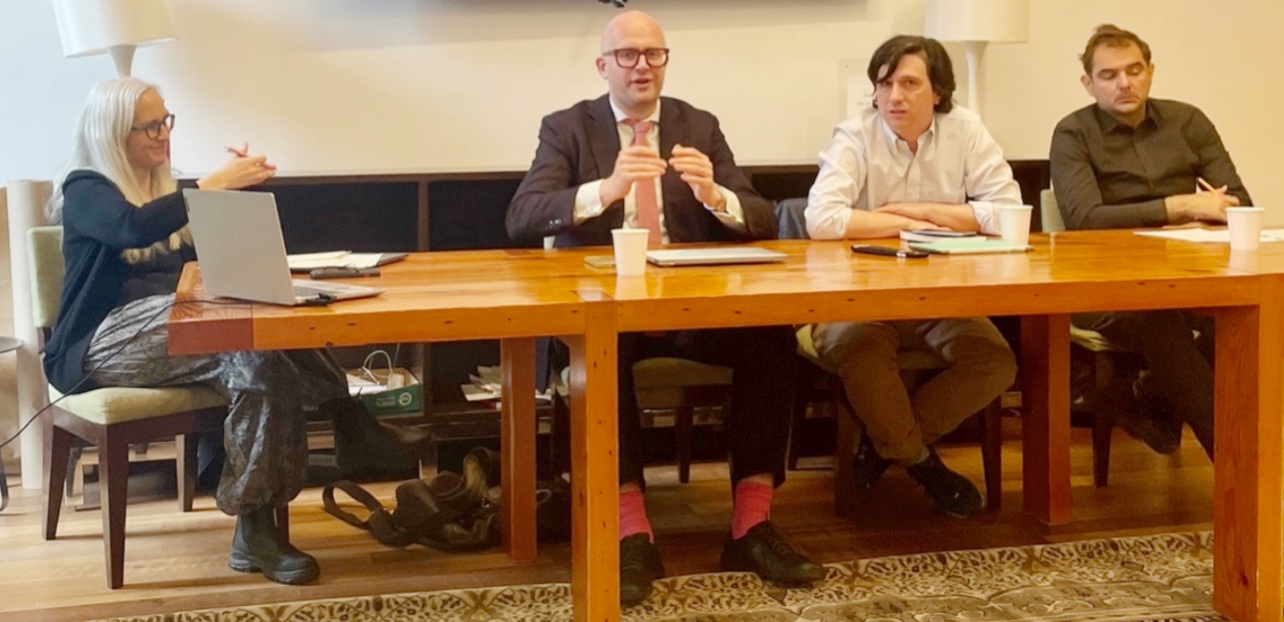
Professor Toplak at the NYU event on strategic corruption

Scholars and practitioners investigated how the United States, the United Kingdom and the European Union can stand up to strategic corruption.
On 28 April 2023, in a debate titled 'The Rise of Strategic Corruption: How are the US, UK and the EU responding?' experts debated transnational corruption in foreign affairs, which they see as a threat to democracy.
Strategic corruption was defined by Philip Zelikow, an American diplomat and University of Virginia professor who served as the executive director of the 9/11 Commission. Strategic corruption occurs when a government weaponizes corrupt practices as a tenet of its foreign policy, Zelikow and coauthors wrote in the Foreign Affairs journal in 2020.
"Graft is nothing new; it may be the second-oldest profession. Powerful people and those with access to them have always used kickbacks, pay-to-play schemes, and other corrupt practices to feather their nests and gain unfair advantages. And such corruption has always posed a threat to the rule of law and stood in the way of protecting basic civil and economic rights. What is new, however, is the transformation of corruption into an instrument of national strategy," the authors wrote.
The roundtable investigated the responses of the EU, UK, and US in their attempts to curb the rise of strategic corruption by foreign actors, primarily, but not only, Russia and China.
Nedim Hogić, Emile Noël Fellow at the NYU School of Law and international corruption expert, who organized the meeting, stressed that "strategic corruption weaponized by foreign actors is becoming a challenge for Western democracies." Hogić, who obtained an LLM degree from Harvard Law School and a PhD in Law from Sant' Anna School of Advanced Studies and is writing a book on judicial anti-corruption campaigns.
Alberto Alemanno, a Jean Monnet Professor of EU Law at the HEC Paris Business School, criticized a limited EU's institutional response to the Qatargate scandal in which several members of the European Parliament were caught receiving money from Qatar. He explained that the EU does not seem capable of ensuring that its institutions would comply with rules and integrity standards.
"The European Commission seemed relieved that EC was not affected, but this was naïve. Most EU citizens do not distinguish between the various EU bodies, and they see the EU as corrupt," Alemanno added.
Transnational corruption affects national affairs and democracy, explained J. Benton Heath, a national security expert and Assistant Professor at Temple University Law School. Pointing to the beneficial ownership situation, "oligarchs are here in the US, with American passports," he said.
The NYU Law Global Postdoctoral Fellow Ewan Smith presented what he considered strategic corruption in China during Boris Johnson's government. "The US has a strong regulation on foreign lobbying but has not implemented it until recently," he commented.
The University of Basel criminal law professor Sabine Gless pointed out that corruption is a criminal law matter. Criminal law discussion should take an essential part in a debate on corruption.
The Alma Mater Europaea professor Jurij Toplak, who teaches at Fordham Law School, reminded speakers of donations as a tool for corruption. Rather than giving to a public official, a donor donates to a third entity, which then improperly or disproportionately benefits a public official or other recipient connected to him.
Participants debated the recent European Court of Justice judgment issued in November 2022, which limited public access to beneficial ownership registries. "However, it is important that the responses are well-balanced and proportionate, in accordance with the rule of law principles and that they do not limit transparency," Hogić commented on the controversial ruling.
The event was moderated by Alexa Olesen, an investigative journalist and researcher who, between 2013 and 2016, led China-focused work on investigative projects China Leaks, Panama Papers and Paradise Papers. For over a decade, she was The Associated Press correspondent from Singapore and China.

